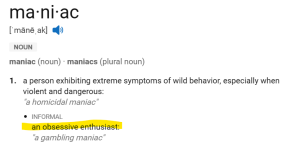“A small degree of hope is sufficient to cause the birth of love.” – Stendal
My mom came over yesterday with a newspaper for me because she had an extra copy. It’s been a long time since I’ve beheld an entire printed newspaper. As much as I like the news, skimming the headlines about Ukranian refugees, discord in the state legislature, the approach of 6 million deaths worldwide from COVID reminded me of something I’d heard researcher Brené Brown say. She said her therapist once told her something like, “Brené, in the time we have together each week I can’t undo the damage you do to yourself listening to the news.”
It also reminded me of an On Being podcast I heard recently where Krista Tippett interviewed CEO and Visionary Trabien Shorters. Trabien has identified our need to redefine the way we look at the world. Instead of continuing our habit of seeing problems and defining people in need in terms of their problems, a worldview he calls deficit-framing, he calls us to practice asset-framing. As Krista said in the podcast, “it works with both cutting-edge understandings of the brain and an age-old understanding of the real-world power of the words we use, the stories we tell, the way we name things and people. “
And in Trabian’s own words, he says asset-framing is “It is defining people by their aspirations and contributions, before you get to their challenges. So whatever is going on in someone’s life, you don’t ignore it, but you don’t define them by the worst moment or the worst experience or the worst potential; none of that. You have to look past their faults, to see who they really are.
And specific to the news, Trabian and Krista talked us through an example of how the news leads us to deficit frame, to see things and particularly marginalized communities by the problems. In the original lede of the story, there isn’t anything very hopeful:
“The Latinx community in the United States has always been, for the most part, on the bottom half on income, in the American society. The struggle to have access to health and mental care is part of the history; however, the COVID-19 pandemic has come to intensify the problems.”
But the revised lede that Trabian and his team helped write started like this:
“Since 2014, Latinx people have constituted the largest ethnic group in the nation’s largest state. They now represent 39 percent of the California population.” And then it goes on to talk about “in recent years Latinx residents have made advances in economic well-being measured by metrics like reduced poverty rates, growth in business ownership.” And then after a couple of sentences like that, people elected to school boards, local offices. “Despite this impressive social and economic progress, Latinx residents have lagged behind other Californians in achieving important goals like home ownership and income growth, and we can now add to that list the disproportionate harm visited on the community by the COVID-19 pandemic.”
Listening to that example, I realize how much how the news is presented matters to our perception. It also makes me appreciate this Word Press Community even more because as the war in Ukraine has ramped up, I’ve seen so many posts that highlight the hope of how to get through it like Jane Fritz did with her post on Robby Robin’s journey yesterday.
A couple of weeks ago my 6-year-old daughter look at the news on the tv and said, “The Queen is dead.” And I had her read the banner again which said, “The Queen has tested positive for Covid-19.” The news is important, but a lot of it is how we read it!
(featured photo from Pexels)


